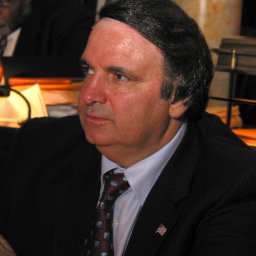Codey: Program will teach students to be good citizens, good thinkers
TRENTON – The Senate Education Committee today approved a bill sponsored by Senate President Richard J. Codey aimed at inspiring high school students to answer the call to service by establishing a new four-year pilot program requiring 20 hours of community service from students at select high schools prior to graduation.
“In the age of the Internet, kids often hide behind computers, video games and television, taking part in faceless interactions that fail to expose them to real human circumstances and needs,” said Codey. “We have a moral obligation and a social commitment to help those less fortunate. By making community service part of the high school experience, we can teach students that life is much bigger than the individual and that each of us has the ability to impact others.”
Senate bill S2898, builds upon the recommendations made by the Commissioner of the state Department of Education (DOE) after the completion of a previous Community Service Pilot Program established under a 2005 law also sponsored by Sen. Codey. When the 2005 law went into effect, New Jersey became just the second state in the nation, along with Maryland, to require community service for high school students.
Unlike Phase I, which was geared specifically towards high school juniors, Phase II of the pilot program, would require students who enter grade nine in the 2010-2011 school year in a select pilot school to complete a minimum of 20 hours of community service over the four years of high school.
“Our goal here is to inspire students to look beyond themselves to the needs of the community around them, and hopefully instill in them a life-long desire to give back,” added Codey. “If implemented right, this program will hopefully teach students to be good citizens, and good thinkers.”
Under the bill, the DOE Commissioner would select 15 schools to participate in the pilot program, including five schools in each of the northern, central, and southern regions of the state. The commissioner would also be responsible for ensuring that the program includes a data collection component in order to determine strategies that would be most effective for implementing a statewide program in the future. After analyzing the data, the commissioner would be required to issue a report to the Governor and the Legislature on the effectiveness of the pilot program by December 2014. The report would include a recommendation on the advisability of the pilot program’s continuation and expansion to all high schools within the state.
The bill now heads to the full Senate for approval.
# # #


